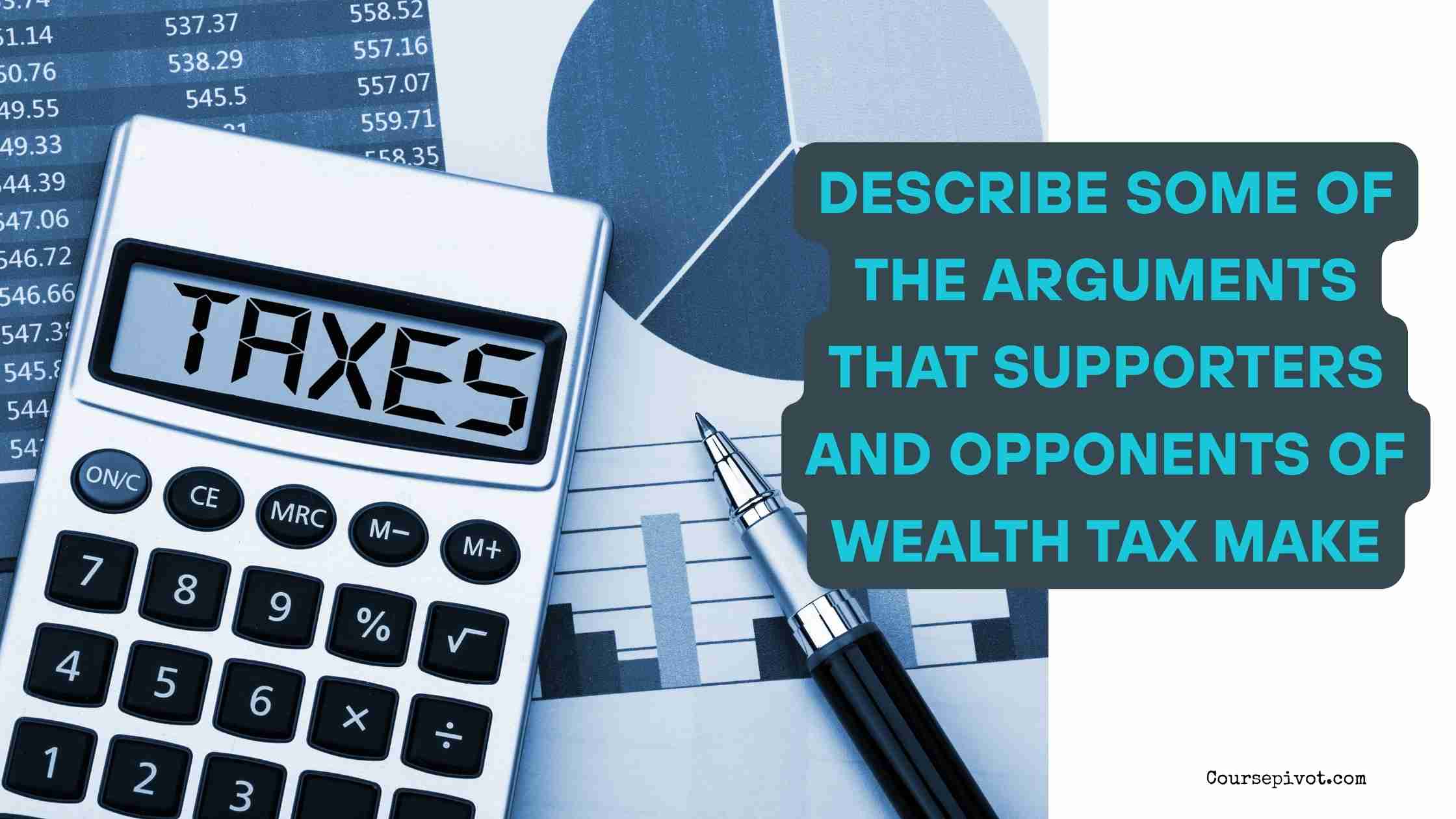
Arguments That Supporters and Opponents of Wealth Tax Make
When I first heard about the wealth tax, I didn’t fully understand what made it such a polarizing issue. To some, it sounded like common sense—tax the richest to support the rest. To others, it was a dangerous overreach—punishing success and damaging growth. So I dug deeper.
And I discovered something interesting.
The arguments that supporters and opponents of wealth tax make go beyond numbers and economics. They touch on values, fairness, freedom, and even how we define opportunity.
Table of Contents
Do we owe society more if we have more? Or should success be rewarded, not taxed?
This article will help you understand both sides of this ongoing debate. Whether you’re in favor, against, or somewhere in the middle, knowing these arguments is essential in today’s economic and political climate.
What Is a Wealth Tax? A Quick Refresher
A wealth tax is a tax levied not on income, but on a person’s net worth—their total assets minus liabilities. That includes cash, stocks, bonds, property, and more.
Unlike income tax, which targets earnings, the wealth tax targets accumulated assets, often focusing on individuals above a certain wealth threshold, such as $50 million or $1 billion.
The idea sounds simple. But the implications? Far from it.
- Read our blog on 10 Reasons Why You Should Never Pay Off Your Mortgage
Arguments in Favor of the Wealth Tax
Supporters of the wealth tax usually frame their arguments around fairness, inequality, and revenue. Here’s what they say:
1. Reducing Economic Inequality
- The gap between rich and poor is widening.
- A wealth tax helps redistribute resources and reduce this divide.
- It’s argued that the ultra-wealthy have benefitted most from economic systems and should contribute more.
I’ve heard people say, “Why should a billionaire pay a lower tax rate than a teacher?” That question strikes at the heart of this argument.
2. Raising Government Revenue for Social Programs
- Wealth taxes could generate billions in new revenue.
- This money could fund healthcare, education, infrastructure, or even climate change efforts.
- It allows governments to invest in the broader public good without raising income taxes for working people.
Supporters believe this is a powerful tool to invest in the people, not just the privileged.
3. Addressing Unfair Loopholes
- Many wealthy individuals avoid income taxes through legal loopholes.
- A wealth tax would help close these gaps, ensuring those with extreme wealth still contribute fairly.
I’ve come across stories of billionaires paying zero in income tax. That’s where the wealth tax becomes a moral argument as much as a financial one.
Arguments Against the Wealth Tax
Now, let’s shift gears.
Opponents of the wealth tax argue from the perspectives of freedom, efficiency, and economic impact. Their reasoning is just as passionate.
1. Penalizing Success
- Many say a wealth tax punishes people for working hard and succeeding.
- Entrepreneurs and innovators might feel discouraged from building wealth if it means more taxes.
From this point of view, taxing wealth sounds like punishing ambition.
2. Risk of Capital Flight and Tax Avoidance
- Critics warn that the rich will move their money—or themselves—offshore.
- If that happens, the tax may bring in far less revenue than expected, while harming local investment and job creation.
This is one of the most frequent concerns I’ve heard in business circles: “If you tax the rich too hard, they’ll leave.”
3. Administrative Challenges and Legal Hurdles
- Tracking global assets is complex, especially with properties and offshore holdings.
- Implementing a wealth tax could cost more than it brings in, some argue.
- Legal challenges could drag on for years.
Even if the idea is appealing, the execution of a wealth tax is anything but simple.
- Read our blog on Can I Pay Someone to Do My Homework Online?
4. It May Hurt the Middle Class Indirectly
- Some fear that wealth taxes will lead to lower investment returns, slower economic growth, and job losses.
- While targeted at the rich, the ripple effects might still hit the broader economy.
This is a subtle but important point: the impact of wealth tax may be indirect, but widespread.
Bridging the Divide: Is There a Middle Ground?
Some economists suggest modifying existing taxes or closing loopholes instead of creating a new tax altogether. Others propose wealth taxes with higher thresholds, affecting only the ultra-rich.
In my view, this middle ground deserves attention. It recognizes the need for fairness without stifling innovation or investment.
Wealth tax doesn’t have to be all or nothing.
The Wealth Tax Debate—What It’s Really About
In the end, the arguments that supporters and opponents of wealth tax make reflect much deeper beliefs about how society should function. Supporters argue that wealth taxes reduce inequality, close tax loopholes, and generate revenue for public services.
Opponents, on the other hand, argue that such taxes discourage success, are hard to enforce, and could hurt the economy in the long run. Both sides raise valid points, and understanding them fully is key to shaping a fair, efficient, and sustainable tax system for the future.
Cite this article
You can copy and paste your preferred citation format below.
Martin, L. & Arquette, E.. (2025, May 24). Arguments That Supporters and Opponents of Wealth Tax Make. Coursepivot.com. https://coursepivot.com/blog/describe-some-of-the-arguments-that-supporters-and-opponents-of-wealth-tax-make/



